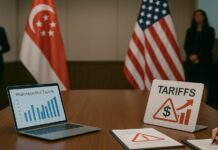Eisai Co., Ltd. announced that it will take over by transfer the manufacturing and marketing approval of Parkinson’s disease treatment Equfina 50mg TABLETS (safinamide mesilate, “Equfina”) in Japan from Meiji Seika Pharma Co., Ltd., effective September 23, 2020.
In Japan, Meiji conducted clinical studies of Equfina and obtained its manufacturing and marketing approval in September 2019. Eisai has exclusively sold Equfina in Japan as a distributor. Based on the license agreement signed between Eisai and Meiji, Eisai will take over by transfer the manufacturing and marketing approval of Equfina from Meiji. Eisai, as the manufacturer and distributor of Equfina in Japan, will continue to provide information on the proper usage of Equfina.
Equfina, developed by Meiji in Japan, is a once-daily oral treatment for Parkinson’s disease. It is a selective and reversible monoamine oxidase B (MAO-B) inhibitor that helps to maintain the density of endogenous dopamine and exogenous dopamine from levodopa-containing drugs in the brain (dopaminergic mechanism). In addition, Equfina blocks voltage-dependent sodium ion channels and inhibits glutamate release (non-dopaminergic mechanism). In the clinical studies conducted in Japan for Parkinson’s disease patients under treatment with a drug containing levodopa, the extension of levodopa’s duration of effect (“on” time) of one hour or more and improvement of motor functions were shown. Improvement effect on the wearing off phenomenon is expected.
Following the completion of the transfer, Eisai will continue to deliver Equfina, a new option for Parkinson’s disease treatment in Japan to patients, thereby increasing the amount of time that they can freely engage in activities on their own initiative. Eisai will further contribute to improving the QOL of patients and enabling their families to create a vibrant daily life.
About Equfina (safinamide mesylate “safinamide”)
Safinamide is a selective monoamine oxidase B (MAO-B) inhibitor that reduces the degradation of excreted dopamine, helping to maintain the density of dopamine in the brain. Additionally, safinamide blocks sodium ion channels and inhibits glutamate release, and as such has potential as a new Parkinson’s disease treatment which possesses both dopaminergic and non-dopaminergic mechanisms.
Safinamide was discovered and developed by Newron Pharmaceuticals S.p.A. In 2011, Newron entered into a licensing agreement with Meiji, granting Meiji exclusive rights to develop, manufacture and commercialize the drug in Japan and Asia. Eisai has exclusive rights for marketing in Japan, as well as for development and marketing in Asia* based on a licensing agreement signed between Eisai and Meiji. Safinamide mesilate is marketed under the name “Xadago” in 15 countries in Europe, the United States and Australia, and under the name “Onstryv” in Canada.
About Meiji Seika Pharma
In order to protect and improve people’s health and lives, Meiji Seika Pharma, as a “Speciality and Generic Pharmaceuticals Company”, runs its pharmaceutical business in two main fields: infectious disease and central nervous system disorders, as well as generic drugs. Meiji Seika Pharma strives to respond to diversified medical needs and to contribute to the well-being of people worldwide.
About Eisai
Eisai Co., Ltd. defines our corporate mission as “giving first thought to patients and their families and to increasing the benefits health care provides,” which we call our human health care (hhc) philosophy. With approximately 10,000 employees working across our global network of R&D facilities, manufacturing sites and marketing subsidiaries, we strive to realize our hhc philosophy by delivering innovative products to address unmet medical needs, with a particular focus in our strategic areas of Neurology and Oncology. As a global pharmaceutical company, our mission extends to patients around the world through working with key stakeholders to improve access to medicines in developing and emerging countries.


















